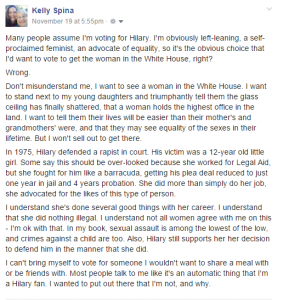Since becoming a Certified Hypnotist, I’ve been asked a lot of questions about how hypnosis works. I wrote this blog in hopes of answering many of those questions.
What exactly is hypnosis? Hypnosis is an induced state to take the brain from Beta waves to Alpha waves so the client is receptive to suggested behavior modifications. Hypnosis is best for clients who want immediate or near-immediate goals. It takes approximately 21 days to break an old habit and/or form a new one. Hypnosis can be used for a variety of things, including help to quit smoking, weight loss, motivation, beating addictions, fear of flying, anger, insecurities, self esteem, confidence, test anxiety, shyness, finding lost objects, overcoming phobias, past life regression, and many more ways.
Beta waves are the normal brain waves for a conscious person. When one goes into Alpha waves, their mind slows down slightly and they’re able to focus on one train of thought. A lot of people go into the Alpha stage when watching television. Other normal every day activities most people do that put their brain into Alpha waves are driving, playing video games, and using the computer. They are fully functional with Alpha waves, they’re just able to focus more.
There’s no danger with hypnosis. Even when we fall asleep, our eyes may close but our ears remain open and alert. If the client wants out of hypnosis, they can bring themselves out of it. They won’t cluck like a chicken if they don’t want to. The Hypnotist cannot suggest the client do something they don’t want to do. Hypnosis only works if the client truly wants to reach the goal. Also, no one has ever fallen asleep during hypnosis and was unable to wake back up.
Some people worry their IQ is too high for them to be hypnotized. That’s not the case at all! The higher your IQ is, the more receptive you are to being hypnotized. You simply have to sincerely want the change and be willing to follow through with your assignment / HW I give you between sessions, and you will have success.
Rarely a reaction occurs that we call an Abreaction. While under hypnosis, the client will scream or yell out. If this happens, I stop the hypnosis session and bring the client back to Beta waves.
What can you expect during your session? I’m going to have you sit or lay back, whichever is more comfortable for you. I’ll talk you down to the Alpha stage, and then I’ll make the suggestions that we agreed hypnosis could help you with. Afterward, I’ll talk you back up to Beta waves. You’ll hear some gentle music in the background. You may or may not remember your hypnosis session, and that’s ok either way. You may be aware and remain aware of everything I say while you’re under hypnosis, and that’s ok because you’re still under hypnosis. Some people remember everything, some people remember very little, but either way the hypnosis session works and helps them change their behaviors. When we’re done the hypnosis session, I’ll email you an MP3 of the hypnosis session we had and I’ll want you to listen to it once a day for 21 days and using headphones, plus follow through on any other assignment I give you to complete between our sessions.
Hypnosis has been used to successfully allow a patient to be operated on without any anesthesia. When Hypnosis is the only form of getting the patient to relax and feel no pain, it’s called Hypnosurgery. If hypnosis is used in addition to a local anesthetic or light anesthetics, it’s called Hypnosedation. Some women are even using hypnosis for pain relief during giving birth instead of using anesthesia and medications for pain relief.
Shape Magazine – November 2011 online issue – had a hypnosis success story where a US veteran had foot surgery, and after the surgery she found she needed to lose 30 pounds. She underwent hypnosis in 2011 and it was reported in a follow-up article 2 years later that she’s successfully lost the extra weight and has maintained her goal weight.
In 2012, the Huffington Post blog posted about a 90-year old woman who had a pack a day smoking habit who was about to successfully quit and maintain using hypnosis at the age of 64. She’s been able to remain smoking-free for 26 years now. She knows that even smoking one cigarette would restart her addiction all over again, but she’s not worried because she hasn’t had even one craving to smoke again since undergoing hypnosis.
If you sincerely want certain behaviors and beliefs in your life to change, and you’re willing to do the work, then hypnosis can work for you and you will achieve your goals.
If you have more questions about hypnosis and if it could benefit you, please contact me via my facebook page.







